Filter by
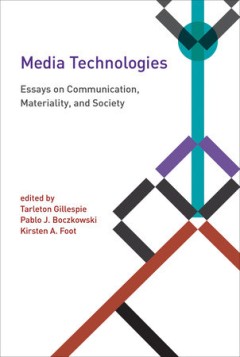
Media technologies :essays on communication, materiality, and society
Scholars from communication and media studies join those from science and technology studies to examine media technologies as complex, sociomaterial phenomena. In recent years, scholarship around media technologies has finally shed the assumption that these technologies are separate from and powerfully determining of social life, looking at them instead as produced by and embedded in distinc…
- Edition
- -
- ISBN/ISSN
- 9780262319461
- Collation
- 1 online resource (xii, 325 pages) :illustrations (some color).
- Series Title
- -
- Call Number
- -
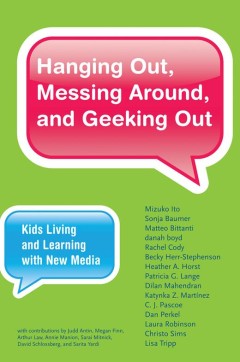
Hanging Out, Messing Around, and Geeking Out: Kids Living and Learning with N…
An examination of young people's everyday new media practices—including video-game playing, text-messaging, digital media production, and social media use. Conventional wisdom about young people's use of digital technology often equates generational identity with technology identity: today's teens seem constantly plugged in to video games, social networking sites, and text messaging. Yet t…
- Edition
- -
- ISBN/ISSN
- 9780262258920
- Collation
- -
- Series Title
- -
- Call Number
- -
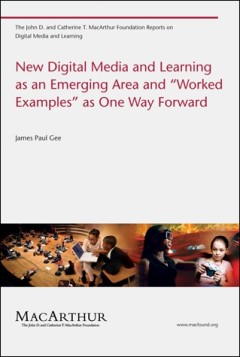
New Digital Media and Learning as an Emerging Area and "Worked Examples" as O…
A proposal to move the academic area of digital media and learning toward more coherence. In this report, noted scholar James Paul Gee discusses the evolution of digital media and learning (DMAL) from its infancy as an “academic area” into a more organized field or coherent discipline. Distinguishing among academic areas, fields, disciplinary specializations, and thematic disciplines, Ge…
- Edition
- -
- ISBN/ISSN
- 9780262288255
- Collation
- -
- Series Title
- -
- Call Number
- -
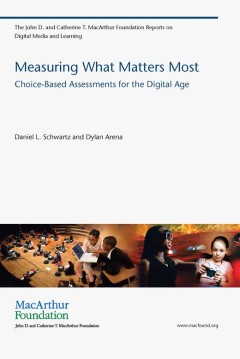
Measuring What Matters Most: Choice-Based Assessments for the Digital Age
An argument that choice-based, process-oriented educational assessments are more effective than static assessments of fact retrieval. If a fundamental goal of education is to prepare students to act independently in the world—in other words, to make good choices—an ideal educational assessment would measure how well we are preparing students to do so. Current assessments, however, focus …
- Edition
- -
- ISBN/ISSN
- 9780262312882
- Collation
- -
- Series Title
- -
- Call Number
- -
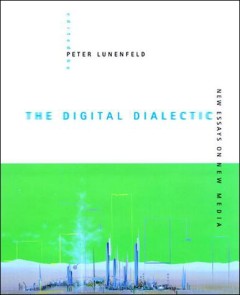
The digital dialectic: new essays on new media
The Digital Diolectic is an interdisciplinary jam session about our visual and intellectual cultures as the computer recodes technologies, media, and art forms. Unlike purely academic texts on new media, the book includes contributions by scholars, artists, and entrepreneurs, who combine theoretical investigations with hands-on analysis of the possibilities (and limitations) of new technology. …
- Edition
- -
- ISBN/ISSN
- 9780262278645
- Collation
- 1 online resource (xxi, 298 pages) :illustrations.
- Series Title
- -
- Call Number
- -
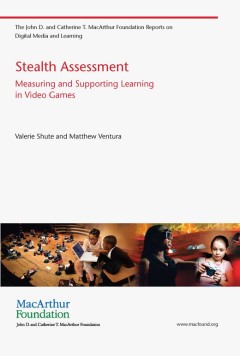
Stealth Assessment: Measuring and Supporting Learning in Video Games
An approach to performance-based assessments that embeds assessments in digital games in order to measure how students are progressing toward targeted goals. To succeed in today's interconnected and complex world, workers need to be able to think systemically, creatively, and critically. Equipping K-16 students with these twenty-first-century competencies requires new thinking not only about…
- Edition
- -
- ISBN/ISSN
- 9780262315210
- Collation
- -
- Series Title
- -
- Call Number
- -
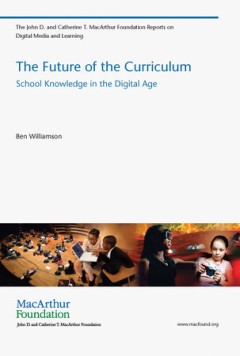
The Future of the Curriculum: School Knowledge in the Digital Age
An examination of curriculum innovations that are shaped by new ideas about digital media and learning. Although ideas about digital media and learning have become an important area for educational research, little attention has been given to the practical and conceptual implications for the school curriculum. In this book, Ben Williamson examines a series of contemporary curriculum innovati…
- Edition
- -
- ISBN/ISSN
- 9780262315180
- Collation
- -
- Series Title
- -
- Call Number
- -
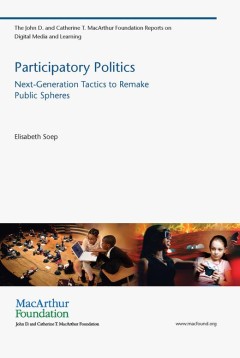
Participatory Politics: Next-Generation Tactics to Remake Public Spheres
An examination of the mix of face-to-face and digital methods that young people use in their experiments with civic engagement. Although they may disavow politics as such, civic-minded young people use every means and media at their disposal to carry out the basic tasks of citizenship. Through a mix of face-to-face and digital methods, they deliberate on important issues and debate with peer…
- Edition
- -
- ISBN/ISSN
- 9780262320207
- Collation
- -
- Series Title
- -
- Call Number
- -
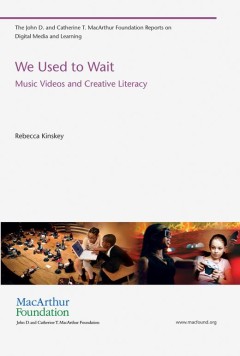
We Used to Wait: Music Videos and Creative Literacy
An investigation of music videos as a form, a practice, and a literacy. Music videos were once something broadcast by MTV and received on our TV screens. Today, music videos are searched for, downloaded, and viewed on our computer screens—or produced in our living rooms and uploaded to social media. In We Used to Wait, Rebecca Kinskey examines this shift. She investigates music video as a …
- Edition
- -
- ISBN/ISSN
- 9780262325479
- Collation
- -
- Series Title
- -
- Call Number
- -
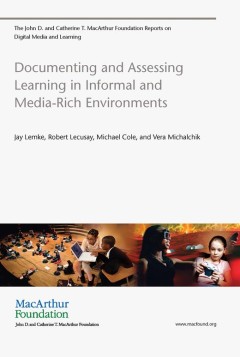
Documenting and Assessing Learning in Informal and Media-Rich Environments
An extensive review of the literature on learning assessment in informal settings, expert discussion of key issues, and a new model for good assessment practice. Today educational activities take place not only in school but also in after-school programs, community centers, museums, and online communities and forums. The success and expansion of these out-of-school initiatives depends on our…
- Edition
- -
- ISBN/ISSN
- 9780262328692
- Collation
- -
- Series Title
- -
- Call Number
- -
 Computer Science, Information & General Works
Computer Science, Information & General Works  Philosophy & Psychology
Philosophy & Psychology  Religion
Religion  Social Sciences
Social Sciences  Language
Language  Pure Science
Pure Science  Applied Sciences
Applied Sciences  Art & Recreation
Art & Recreation  Literature
Literature  History & Geography
History & Geography